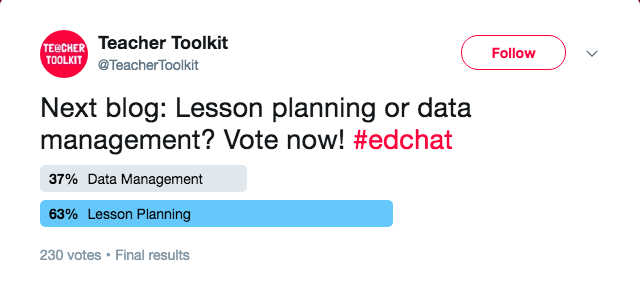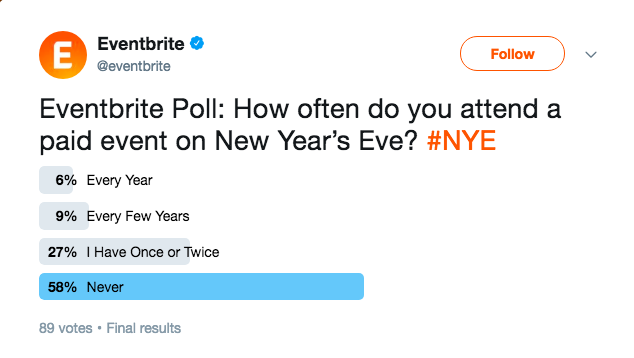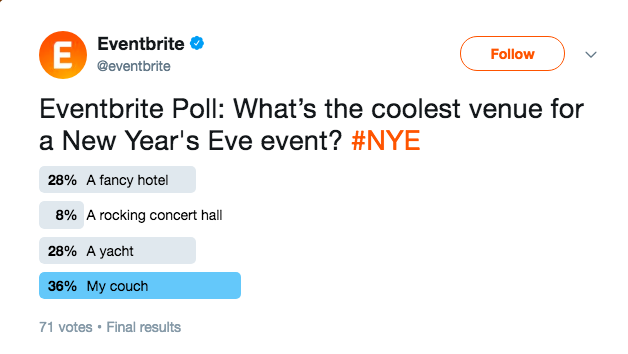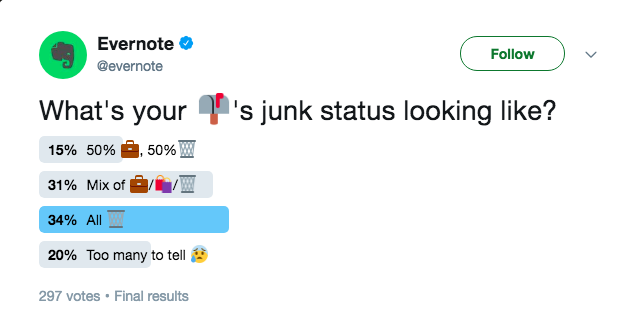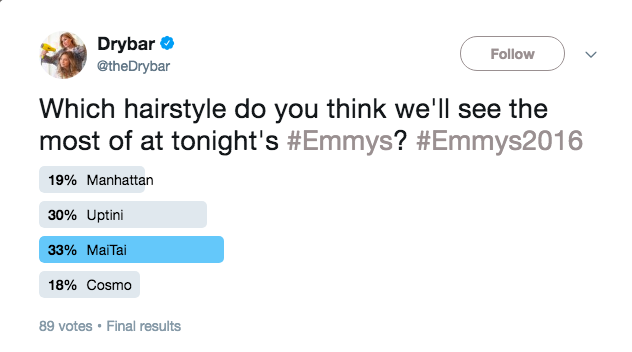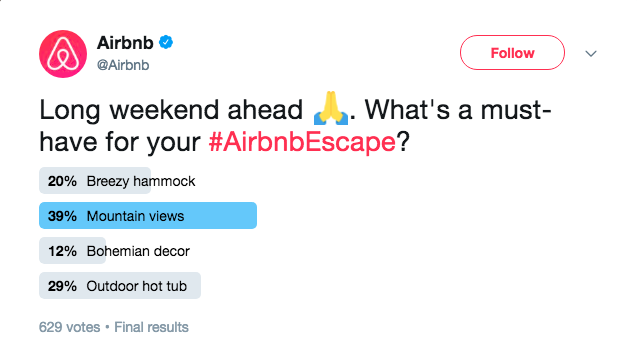Twitter users can now embed polls directly into tweets to get real-time feedback from their audiences. Polling is a great practice to incorporate into your brand’s social media marketing routine. Putting informative content out there is great, but sparking an intelligent conversation is even better!
Here are five ways marketers can use Twitter polls:
1) Refine Your Content
Can’t decide what topic to feature in your next webinar? Let your followers vote! Use a Twitter poll to get early-stage feedback on your content ideas.
For example, Teacher Toolkit, an online educational resource for teachers, regularly uses polls to select their blog topics. This approach helps ensure their audience is interested in the issues they’re covering and also generates some initial engagement with their content before it goes live.
2) Test Out Business Ideas
Polls can also help companies test out a new idea on a small sample of customers before running with it.
For example, when Eventbrite surveyed their audience about their New Year’s Eve habits, they discovered the majority of respondents prefer to stay home instead of purchasing tickets for a formal event. This feedback potentially saved the company from investing time and resources promoting NYE events that were unlikely to be lucrative. With this input, Eventbrite can focus on other special occasions.
3) Stay Top-of-Mind
A running poll series can also help your company stay top-of-mind. Polls should always be relevant to your brand, but they can also be creative and fun.
For example, Evernote, a digital organization app, regularly asks their audience fun questions that relate to productivity and organization. These polls are easy-to-answer and amusing which makes it more likely that respondents will share the content with their co-workers. Spreading the Evernote brand name increases the likelihood that more people will purchase the app.
4) Connect to Popular Culture
In addition, brands can use polls to start conversations around sporting events, movies, music, and awards ceremonies. Consumers are likely to engage with these light-hearted and relatable topics.
For example, Drybar, a chain of hairstyling salons, created a conversation about the Emmys that was both entertaining and relevant to their business offerings.
Before starting a conversation about a cultural event, make sure it’s a good fit with the values and personality of your brand. If you need help defining these, take our brand personality survey.
5) Gather Consumer Insights
Are you interested in getting to know your customers better? If you don’t have the time or budget to conduct an in-depth consumer study, a Twitter poll can help you get quick and concise feedback.
For example, Airbnb regularly asks their followers about their vacation preferences. In one particular survey, Airbnb found out their customers were currently loving mountain views. Airbnb can incorporate this intel in their marketing efforts by filming a new commercial set in the mountains or promoting mountain listings more heavily over the next few weeks.
Get Started!
To create a poll, read the Twitter guidelines here. We recommend that marketers get started by creating one poll per month. Over time, you can experiment with different types of polls and see what resonates the most with your audience.
Like this post? Get more juicy marketing content by signing up for our monthly e-newsletter.

